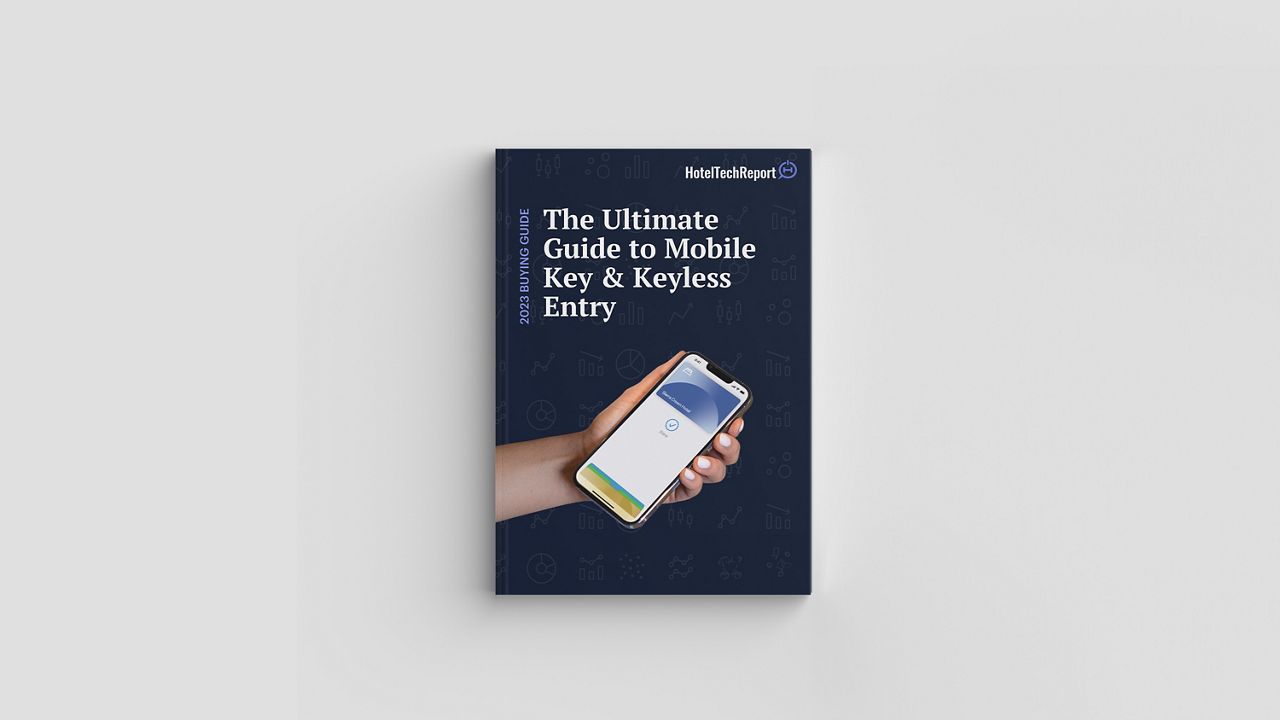
Where Hospitality Businesses Currently Stand in the Ongoing Cloud Technology Revolution


First it was the rise of computing then with the arrival of the internet came a whole new host of revolutionary opportunities for hoteliers to create more efficient, adaptive and profitable businesses in line with contemporary guest expectations. Arguably one of the more influential aspects of this technological evolution in recent years has been the development of cloud-based systems and services with their ever widening presence across virtually all areas of a hotel’s daily operations.
From guest check-in and digital payment services to energy management systems and solutions compiling mass data in order to identify unique patterns and trends, there’s certainly no shortage of cloud-enabled technologies for hoteliers to consider adopting for their own specific business needs. Yet at the same time and due to the sheer mass of cloud-based solutions that are now available, hospitality professionals can sometimes understandably feel a little puzzled over what the key benefits of such technologies are.
To gain some clarity, what follows is a look into what today’s hoteliers are looking for when it comes to cloud-based systems and services as well as what they can ultimately expect when integrating such solutions into their existing tech stack.
Where to Tap into for Next-level Cloud-enabled Efficiency
With as many as 80 percent of IT professionals stating that moving to the cloud has increased their productivity, there’s certainly ample evidence to suggest that the technology can lead to more efficient daily operations and processes for hotels and their staff. When looking at a property’s security access operations as an example, newer cloud-based access management platforms routinely provide employees with the ability to perform various tasks simultaneously without risking a drop in safety and service quality.
Thanks to being able to interact with the system on virtually any device connected to the internet, staff supported by a cloud-based access management system can perform security access-related tasks and receive alerts while performing other responsibilities that require them to travel across a property throughout their shift.
When examining potential cloud-based solutions and to ensure that optimal efficiency is achieved, industry professionals often should seek answers to questions such as:
- Is a solution able to be accessed from multiple types of devices, including workstation computers, laptops, smartphones and tablets?
- Are all features/functionalities able to be interacted with regardless of device type being used? If not, which features/functionalities are essential to being accessed on both stationary computers and mobile devices in order for your property to maintain enhanced efficiency?
- What are a solution’s capabilities in being able to provide real-time communication with the system as well as among a property’s various team members?
- Does the solution provide any analytical insight into current operations performance and/or guest preferences in order to identify new opportunities to further increase efficiency and service quality?
Zeroing in on the Search for Heightened Security
Although cloud-based technologies are frequently referenced as tools that improve efficiency, there’s often a hesitancy among business operators who may believe that such solutions potentially open the door to additional online security vulnerabilities. This in reality, however, is more of a misconception when considering the fact that cloud-enabled systems can often be designed to provide considerably better security protections than legacy platforms.
Going back to the security access management system example, reputable cloud-based platforms are designed to utilize only the latest in data encryption and secure communications channel technology. And unlike older onsite server-based counterparts, access management systems that exist in the cloud are able to benefit from receiving regular software updates. Without any need to involve a hotel’s employees, these updates are downloaded and installed automatically- providing patches to any discovered vulnerabilities or implementing a newly launched security protocol standard.
To improve data security instead of opening themselves up to increased risk, hoteliers may often consider the following questions when considering the security implications of adopting a cloud-based system:
- What sort of measures does a system provide to ensure the secure transmission of data and that only authorized users are able to gain access?
- How frequently does a solution provider perform a security analysis of its platform in order to identify any previously unknown vulnerabilities?
- How quickly is a provider capable of issuing a software update if a vulnerability is discovered or if newer and more effective security protocols are established since the system’s launch?
- What sort of protections does a provider have in place in order to proactively monitor for potential security breaches in real-time?
- What measures does a provider and its system have in place to isolate and minimize any damage should a security breach ultimately take place?
Seeking Out the Advantages of Future-proof Cloud-based Scalability
Efficiency and security matters aside, yet another defining characteristic of cloud technology is the increased flexibility advantages that such systems routinely provide. With technology continuing to progress at an ever faster rate across the hospitality industry and as guest standards and expectations inevitably grow, the robust adaptability of cloud-based systems in catering to new market trends and needs will undoubtedly provide forward-thinking hoteliers with a significant competitive edge. 74 percent of organizations in fact state that cloud technology provides them with a competitive edge in future-proofing their teams.
Taking a look at hotel operations in particular and how cloud-based system scalability can be of valuable use, industry professionals need only consider the growing need for third-party solution integrations. Especially with regards to growing demands among guests for instantly personalized experiences, it’s now increasingly common for properties to attempt to create interconnected environments where data and services flow seamlessly from one system to another. Examples can include integrating a property’s various PMS, energy management, access management, payment processing and guest-facing mobile app services.
Yet as many with legacy onsite server-based systems often know, getting disparate platforms to communicate and seamlessly work together is often far easier said than done. Sidestepping an otherwise complex patchwork of systems, cloud-based solutions routinely can facilitate integrations with third-party technologies with as little as the designing of an API. Better still and further demonstrating the future-proof advantages of cloud-enabled systems is the ability to facilitate integrations with solutions that have yet to be launched and made available to the market.
With their operations inevitably set to evolve to keep pace with changes in technology, business priorities and guest standards, hotel businesses are understandably eyeing migrating to the cloud to minimize challenges, disruptions and costs. Questions that many consider to ensure success can include:
- What sort of long term roadmap strategy does a provider have for its cloud-based solution in order to ensure that it remains relevant to current and future industry needs?
- Does the cloud-based solution provide the ability to custom-tailor features and integrations as specific business needs dictate and arise?
- When integrating with third-party platforms, is the cloud-based system able to maintain streamlined operations free of complex procedures?
- When integrating with third-party platforms, is the cloud-based system able to ensure that all features and functionalities operate reliably and as intended?
Subscribe to our Newsletter
Fill out the form below to subscribe to our newsletter. By doing so, you'll not only be the first to discover what's next on our blog but also join a community passionate about the innovation and tradition driving the hospitality realm forward.
